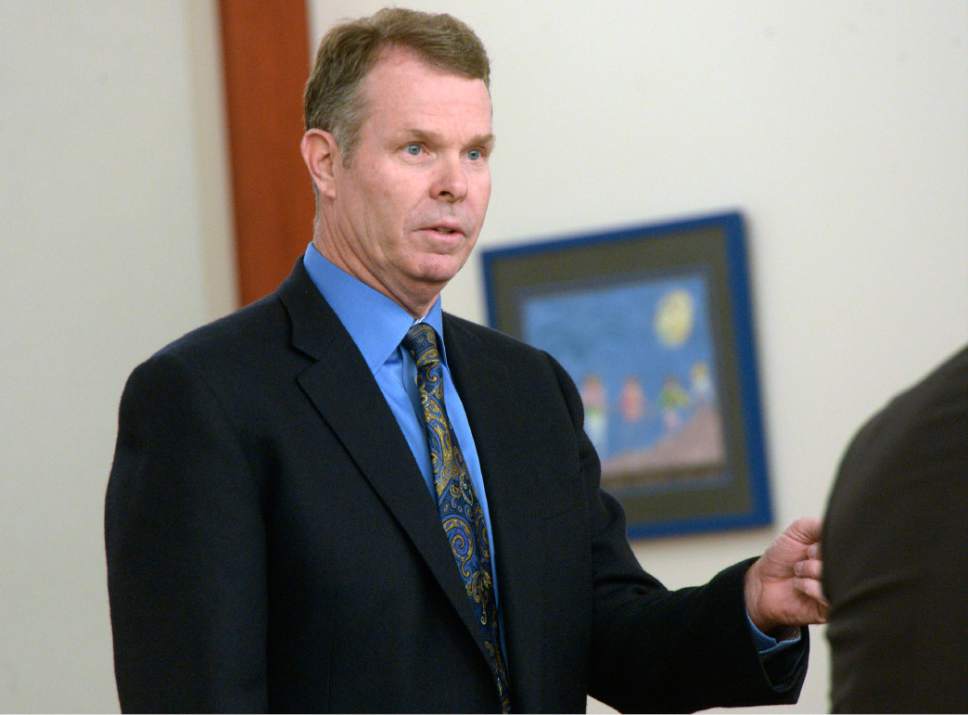This is an archived article that was published on sltrib.com in 2016, and information in the article may be outdated. It is provided only for personal research purposes and may not be reprinted.
The Utah Supreme Court will not decide — nor even consider — whether former Utah Attorney General John Swallow's constitutional rights were violated by state investigators and prosecutors who seized his protected email communications with a defense lawyer.
In a one-sentence ruling Tuesday, the state's highest court denied Swallow's petition seeking a hearing. It gave no reason.
Swallow, who is accused of public-corruption-related crimes, first raised the issue with 3rd District Judge Elizabeth Hruby-Mills in April, asking her to dismiss his criminal case because the private emails had been commingled with evidence in violation of his right to a fair trial.
The judge denied the petition, siding with Salt Lake County prosecutors who argued the email intrusion was not intentional and that none of the communications had been read or used.
Swallow took the issue to the Utah Court of Appeals in August and asked that the matter be passed directly to Supreme Court because the case was the first of its kind.
The petition asked the court to overturn Hruby-Mills' decision and dismiss the case or order her to hold an evidentiary hearing so that Swallow's current defense lawyer, Scott C. Williams, could question prosecutors and investigators.
"Obviously we are very disappointed that the Supreme Court did not see fit to weigh in on what we believe are very important issues regarding serious misconduct that impacts critical constitutional rights, and which are likely to arise in future cases if there is not deterrence," Williams said Wednesday.
It would have been rare for the court to have taken the case, since it had not yet been tried, Williams added. "We are confident that no appellate court will consider issues in this case because there will be no conviction to appeal."
Swallow was arrested and charged with multiple crimes, including counts of money laundering, misuse of public funds, obstruction of justice and falsifying government records. He is scheduled for trial in February 2017.
The charges stem from allegations of a pay-to-play scheme inside the Utah attorney general's office. If convicted, he faces a prison term of up to 30 years.
Investigators raided Swallow's Sandy home in June 2014, seizing computers, tablets and other e-devices, which contained private family communications and emails between Swallow and his then-attorney Rodney Snow.
Included in those were discussions about possible strategies or actions lawyers might take during the investigation.
Swallow's current defense team discovered the emails had been commingled with other evidence during keyword searches earlier this year.



